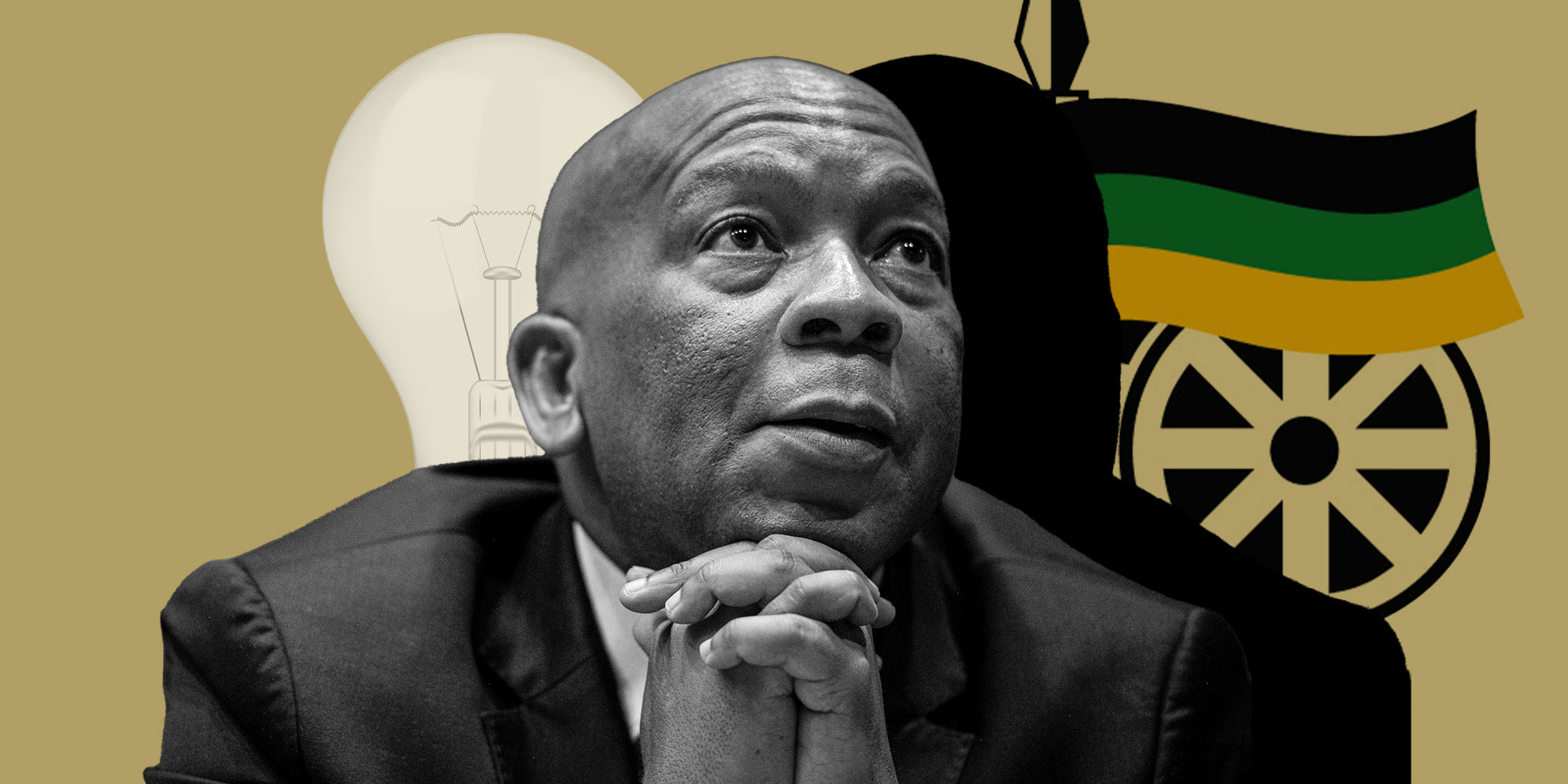It is symptomatic of the state of the ANC that there is no clear candidate to take over from President Cyril Ramaphosa. Certainly, he has nominated no one, and support for Deputy President Paul Mashatile is lukewarm at best.
At the same time, the party faces an existential crisis. So many of its senior leaders have been implicated or associated with wrongdoing or sheer incompetence that it has a shortage of people able to win votes for it.
Considering that it also has to contend with the fracturing of our politics and the fact that it is unlikely to ever again win over 50% of the vote, the electoral appeal of its leader has never been so important.
This places Electricity and Energy Minister Kgosientsho Ramokgopa in an interesting position.
He has been, to an extent, hailed as the minister who ended load shedding.
To be clear, he was not responsible for ending load shedding.
That was a combination of a huge amount of work by Eskom’s teams at its coal-fired power plants and the great increase in the number of people generating their own electricity through solar installations.
What Ramokgopa did do, very effectively, was communicate.
Even when there was only bad news to impart, or really nothing to say, he still communicated. He was almost hyperactive on this front, holding press conferences the moment there was any development.
If Eskom announces a period of load shedding, the next message on the Eskom Media WhatsApp group is the date and time of the inevitable Ramokgopa press conference.
This puts him in a prominent position ahead of the ANC’s leadership race.
The fact that he is a technocrat, a former mayor of Tshwane and impressively qualified also makes him stand out from other ANC leaders.
His relative youth will enable him to deal with the demands of an electorate that increasingly makes its decisions based on how leaders answer questions in the English-language broadcast media.
However, unlike other ANC leaders, he does not have a natural constituency in the ANC.
Leaders have usually been elected to positions among the top six or seven national officials through support from provincial and regional blocs in the party, which is why so much time and energy was spent on lobbying provinces at ANC conferences.
This is changing as the party comes to terms with its electoral losses and the party’s decision-makers focus on who can win votes in an election.
Major challenges
Ramokgopa faces two major challenges, both of which make load shedding look easy to resolve.
The first is load reduction, the process whereby large numbers of people are left without power in rural and township areas.
This is largely the result of a lack of investment in infrastructure in certain areas, coupled with a large number of illegal connections and the refusal of some users to pay for electricity.
The roots of this run deep and involve large amounts of money.
While Ramokgopa has said resolving load reduction is a priority, it’s likely that he will fail to make much improvement in the shorter term.
His opponents will claim that he ended load shedding for the rich but did nothing for poorer people.
The other problem he faces is electricity pricing.
He has said that the current electricity prices are unsustainable — and since he made that comment, prices have gone up.
In the meantime, Joburg’s City Power has started charging prepaid customers R200 a month as a network fee, increasing the price that many pay for electricity.
While Ramokgopa and many others vent their fury about rising electricity prices, the fact is, they’re arguing against gravity.
The pantomime that is SA’s electricity regulator, Nersa’s public hearings on prices has remained unchanged for years. Eskom explains why it needs more money (because, reasonably, coal and other costs have gone up and it needs to invest in more capacity), and a long list of people explain why they can’t pay more (because, reasonably, they have businesses to run and children to feed).
At the same time, the tariff system is now so complicated (the tariff booklet published by Eskom, containing just the list of tariffs approved by Nersa, is now 60 pages long) that virtually no one understands it.
Resolving this is a very technical task. It will not be resolved by politicians but by experts from the regulator, Eskom and independent power producers.
Ramokgopa is in danger of making himself the face of this process.
Power prices can only go up and he could be seen as the person responsible for this.
Ramokgopa’s trajectory in the next few years might well be indicative of the future of the ANC.
The party could opt for an old-style insider, someone who has managed its internal dynamics, with no regard for its electoral face, or it could opt for a younger, more technocratic approach.
However, Ramokgopa may have other options, careerwise. It would say a lot about the ANC if he were offered a chance to contest for a leadership position and turned it down.
Ramokgopa’s actions over the next three years will be useful to understand what is changing in the ANC and what is not. DM





